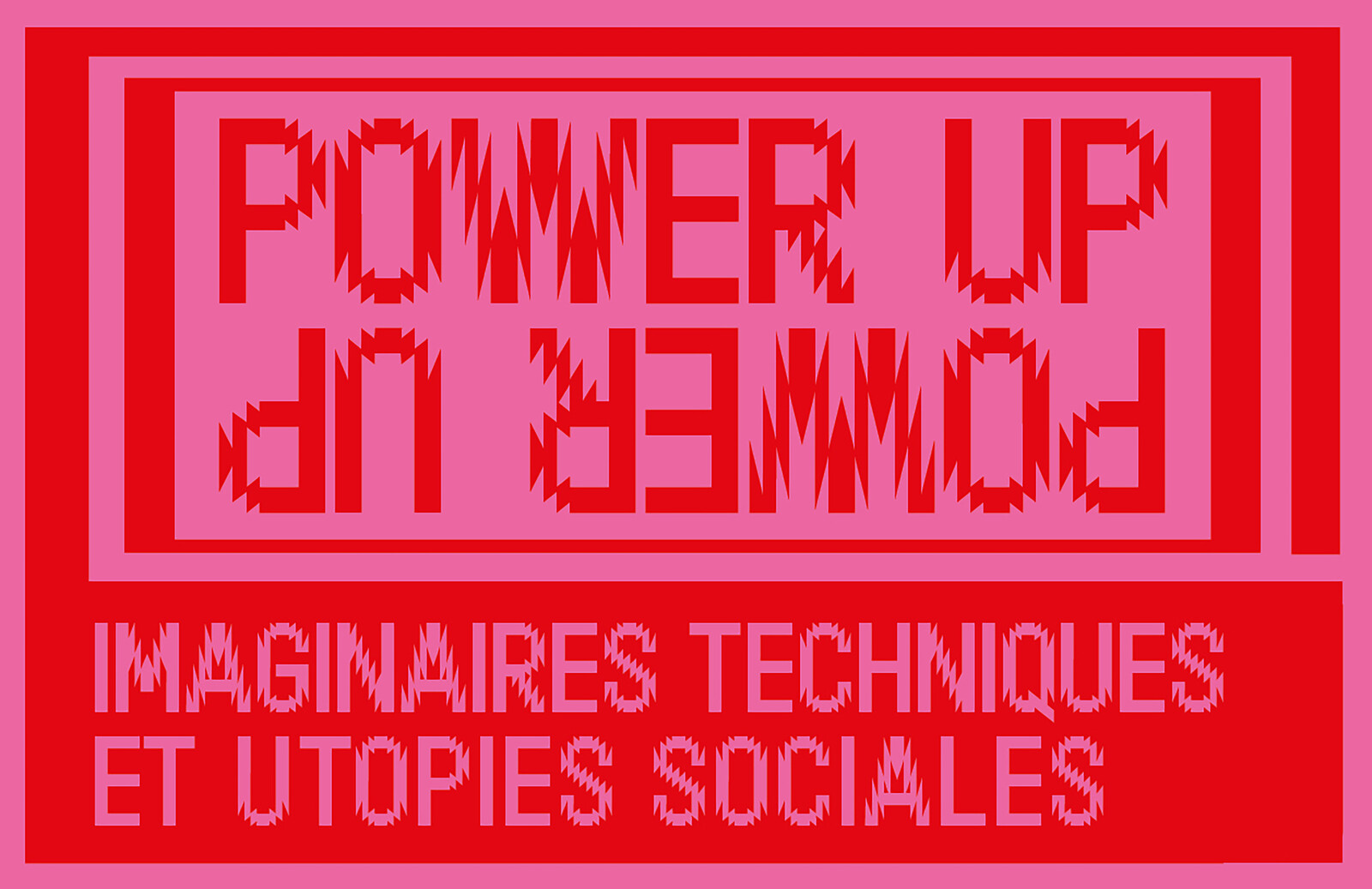Technical Imaginaries and Social Utopias
February 9–September 1, 2024
Le Grand Café—Contemporary Art Centre
2 Place des Quatre Z’horloges
44600 Saint-Nazaire, France
Hours: Tuesday–Sunday 2–7pm
T +33 2 44 73 44 00 / grand_cafe [at] saintnazaire.fr
La Kunsthalle Mulhouse—Contemporary Art Centre
La Fonderie
2nd floor
68000 Mulhouse, France
Hours: Wednesday–Friday 12–6pm; Saturday–Sunday 2–6pm
T +33 3 69 77 6 47 / kunsthalle [at] mulhouse.fr
Artists at Le Grand Café: J.-M and G. Alexandroff, Marielle Chabal, Le Corbusier, Jacques Dommée, Yona Friedman, Véronique Joumard, Mierle Laderman Ukeles, Laura Lamiel, Basim Magdy, Lou Masduraud, Maya Mihindou, gina pane, Claude Parent, Jean Picart Le Doux, Tatiana Trouvé
February 9–September 1, 2024
Artists at La Kunsthalle: Carla Adra, Jessica Arseneau, Marjolijn Dijkman, Hilary Galbreaith, Maya Mihindou, Jürgen Nefzger, Claude Parent, Liv Schulman, Suzanne Treister et Tomi Ungerer
February 16–April 28, 2024
Amid an ecological crisis, Power Up dives into the universe of energy infrastructure; a sprawling invisible subterranean world that nevertheless structures our way of life and determines our view of the world.
Reversing the history of energy, which tells of progress through technological innovation, these two simultaneous exhibitions look at the social practices bound up with the tools of production and distribution. In a blend of visual imagination, speculative tales and ideal architecture, Power Up opens fresh perspectives, refracted through the notion of the common good and the female gaze—of artists, historians and researchers long kept at a distance from this world. It suggests another history of technology: more contextualised and intimist, close to the body, to affects, and environmentally conscious. By driving out resistance to utopias, Power Up asks us to nurture our desires for a different future: does changing society mean changing infrastructure? And for that must we begin by changing our imaginations?
Everywhere, the major infrastructures that support modern life are in a state of disrepair. The causes are diverse and interrelated: there is material deterioration (wear and tear or ageing of structures), the investment in the maintenance and management of these networks, but also the energy and climate crisis, which is weakening and threatening these large-scale technical systems resilient to disasters. Despite these physical changes, the myth of the great infrastructure and the social ideal of a public service building combining economy of scale, technical performance and quality service for the greatest number.
At a time of environmental catastrophe and climate change, how can we think about technology and vital infrastructures such as power plants, adduction system, sanitation and waste treatment systems? How can we extricate technical modernity from its sole relationship to the alleged history of progress, how can we turn it away from the quest for productive profitability, blind optimization and imperialist conquest, historically installed in the service of capital, of these myths and symbols? How can we reclaim technical culture and shed light on its counter-narratives?
Curators: Géraldine Gourbe, Fanny Lopez, Sophie Legrandjacques and Sandrine Wymann
Géraldine Gourbe is a philosopher, an author and a curator working on a historical repair: from feminist countercultures in Southern California to the minimalist canon to a history of European pop art (Les Amazones du pop, Mamac Nice, 2020); or a perspective on the relationship between art and industry in the context of a counter-narrative of the so-called “Trente glorieuses” (Gigantisme, un trait d’esprit, first Dunkerque’s Triennal, 2019). Her publications include a monograph on Judy Chicago, To Sustain the Vision (Ed. Villa Arson and Shelter Press, 2020) and an essay on Simone de Beauvoir, Beauvoir (Ed. Pérégrines, 2022).
Fanny Lopez is a historian of architecture and technology (Université Paris I Panthéon-Sorbonne), Professor at ENSA Paris-Malaquais. Her research and teaching activities focus on the spatial, territorial and environmental impact of energy and digital infrastructures, as well as the associated technical imaginaries. Among her books: Dream of a Disconnection, from the Autonomous House to the Auto-energetic City (Ed. La Villette, 2014) translated by Manchester University Press, 2021), The Electric Order, Energetic Infrastructures and Territory (Ed. Métis Presses 2019 - AARHSE prize).
Sophie Legrandjacques is curator and the director of Le Grand Café - contemporary art center in Saint-Nazaire, where she develops an ambitious project linked to the territorial logic of a town of industrial modernity, through invitations to French and international artists. Accompanying artists over long periods of research and development, these invitations often constitute hinge or springboard projects, with significant works in the artists’ careers.
Sandrine Wymann is curator and the director of La Kunsthalle – Mulhouse. She has been developing a project that places art at the heart of the city. In the Mulhouse area, a multicultural city emblematic of industrial development in the 19th and 20th centuries, she invites artists to situate their research and their work and encourages long-term collaborations through residencies that include research, production and encounters with audiences.
The exhibition in Saint-Nazaire is made with the support of Pro Helvetia.
Press contacts
Le Grand Café: Anne Samson Communication / Morgane Barraud, morgane [at] annesamson.com
La Kunsthalle: Sophie Janski-Ruch sophie.janski-ruch [at] mulhouse-alsace.fr

